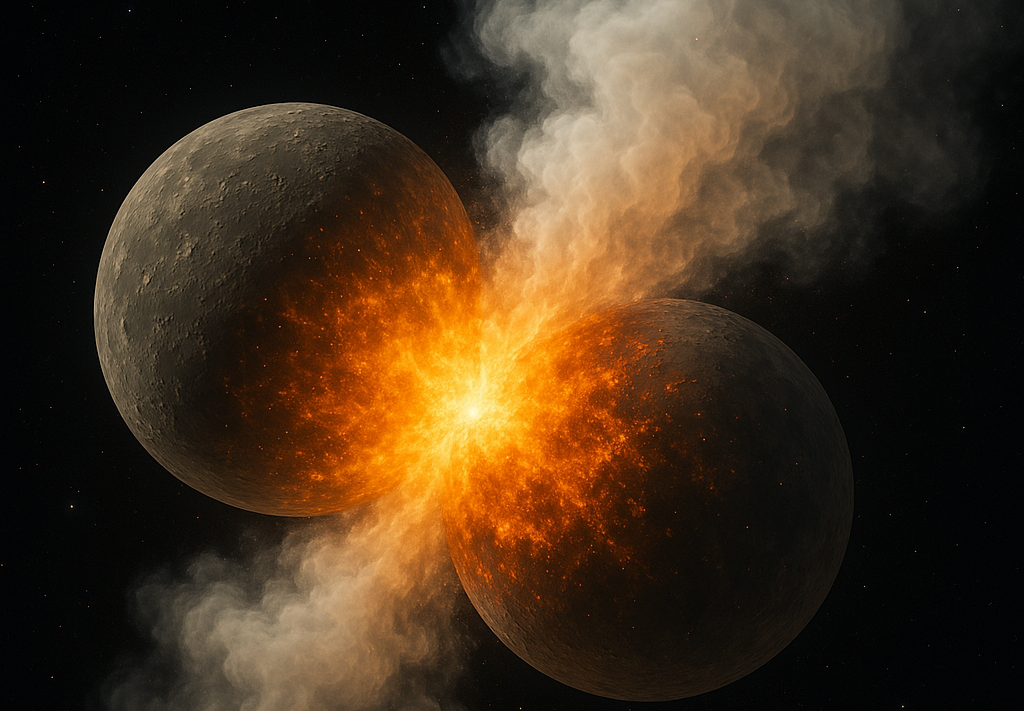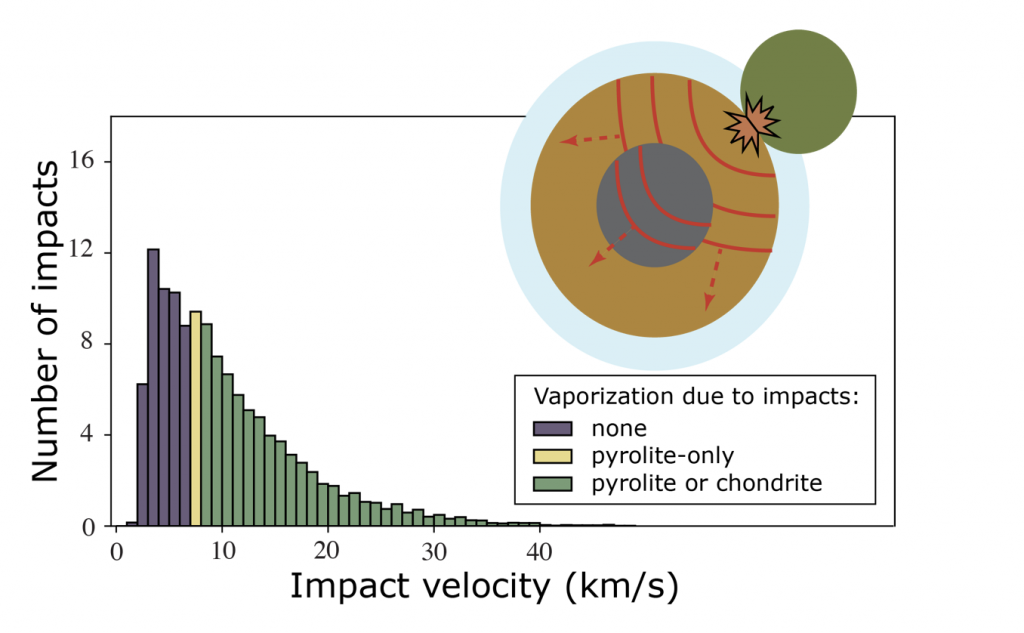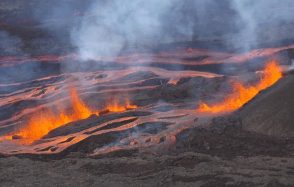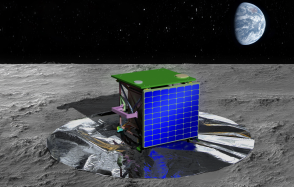Impact-induced Vaporization During Accretion of Planetary Bodies
A new study by Adrien Saurety and Razvan Caracas (Institut de Physique du Globe de Paris) reveals the significant role of vaporization during the accretion of planetary bodies.

Collision between two primordial planetary bodies during the accretion phase / AI-generated image
Publication date: 31/03/2025
Events, Research
Related teams :
Cosmochemistry, Astrophysics and Experimental Geophysics (CAGE)









